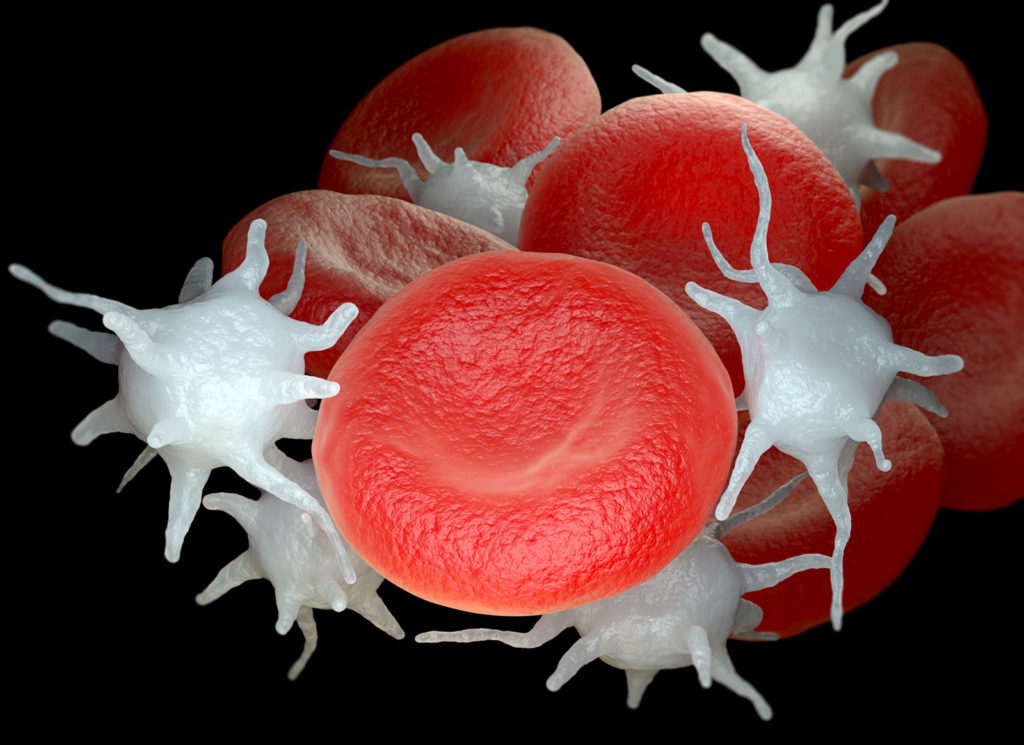ITP: A Disorder of Blood Platelets

Platelets are tiny blood cells involved in blood clotting. They are vital to stop bleeding when we get cut or otherwise injured. If the number of platelets gets too low, a person may have bruising or easy bleeding. Blood platelets become scarce for many reasons, including infection, cirrhosis, problems in bone marrow, and immunity problems. Immune thrombocytopenic purpura, or ITP, is a disorder of the immune system in which our body produces antibodies against platelets, which attach to the platelets and cause them to be destroyed.
ITP is the most common cause of low blood platelets, affecting 1 in 10,000 individuals. ITP in children often improves spontaneously, but ITP in adults often becomes a chronic condition. Symptoms of ITP include nosebleeds, gum bleeding, blood in the urine, heavy periods, or blood in the stool. Many ITP patients develop petechiae, a skin rash caused by bleeding into the skin.
A simple blood test will show how low the platelets have dropped, and other tests rule out other causes of low platelets, such as infection. Patients with low platelets get a spleen examination, because the spleen is not enlarged in ITP, though it is enlarged in other diseases. Occasionally a biopsy of the bone marrow is needed to exclude other causes of low platelets.
Mild ITP without bleeding does not require treatment, but ITP with bleeding requires aggressive treatment. Patients are treated with glucocorticoid steroids, and platelet levels are rechecked every week or two. Most patients do not require hospitalization. If the platelets rise within several weeks, the dose of prednisone is decreased over several months. It is important not to stay on steriods too long, because of side effects including increased blood pressure, diabletes, osteoporosis, and weight gain. Some patients remain in remission after prednisone is stopped, but many relapse.
Patients with relapsed ITP need surgery- removal of the spleen- to control their platelets counts and prevent bleeding. Removal of the spleen works because this is the organ that is responsible for destruction of blood platelets. After removal of the spleen approximately 70 % of ITP patients go into remission.
If ITP relapses after removal of the spleen, platelets can be managed with more steroids, intravenous immunoglobulin, winrho, rituxan, or vincristine. Danazol is another drug used in relapsed ITP. Patients may go into remission at any point in the course of their disease. Only in rare cases do the low platelets become a life-threatening problem.

